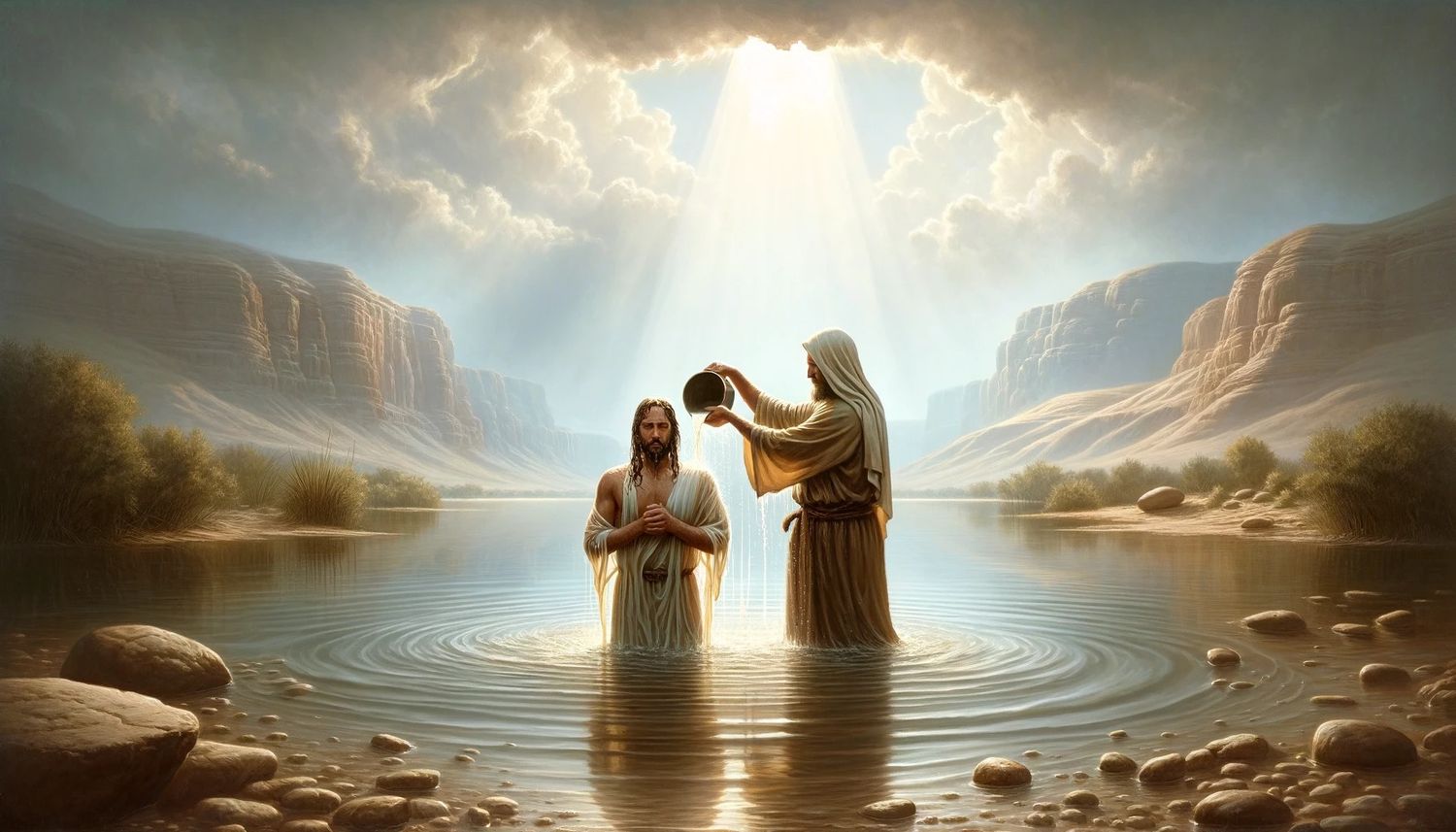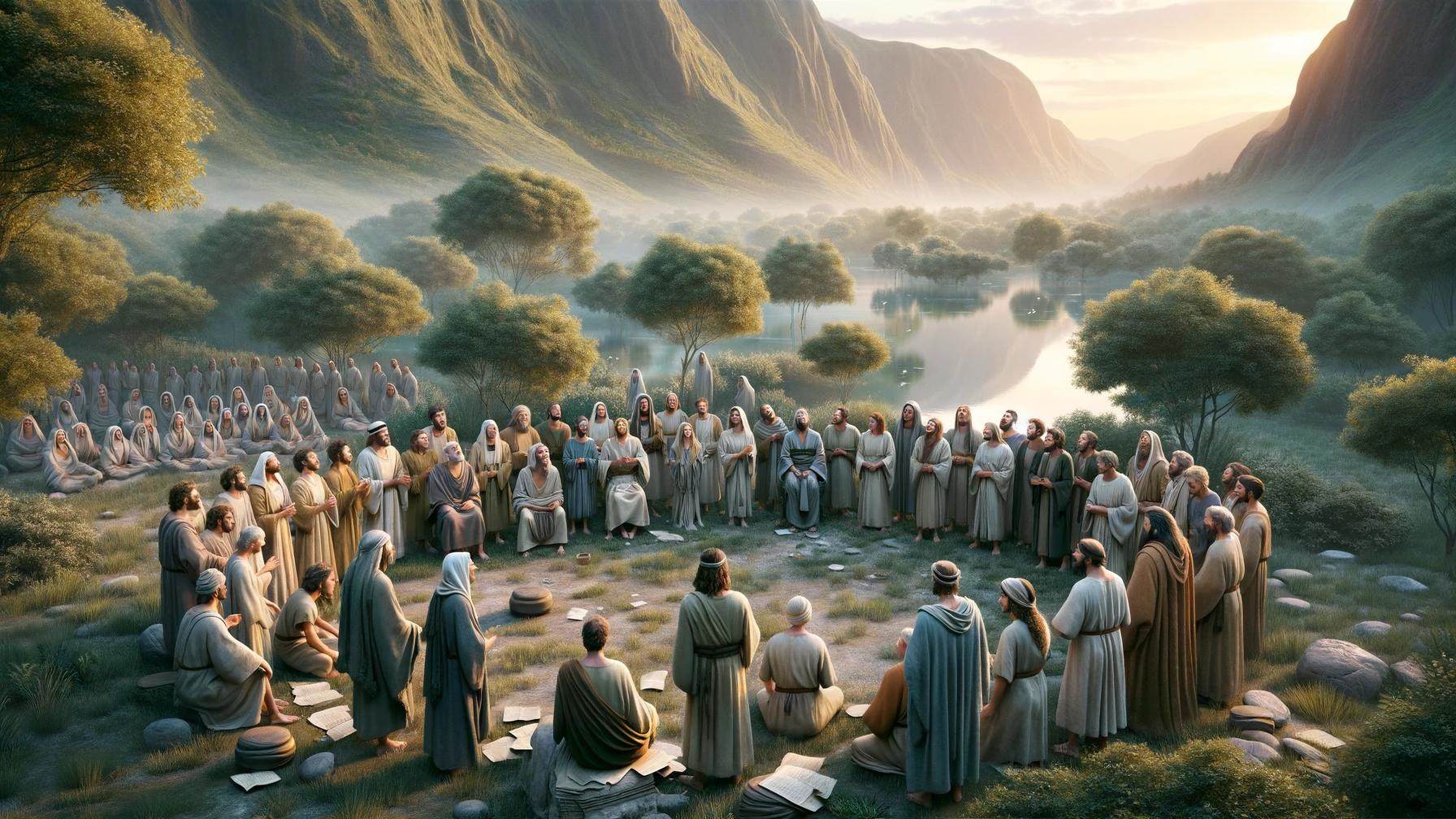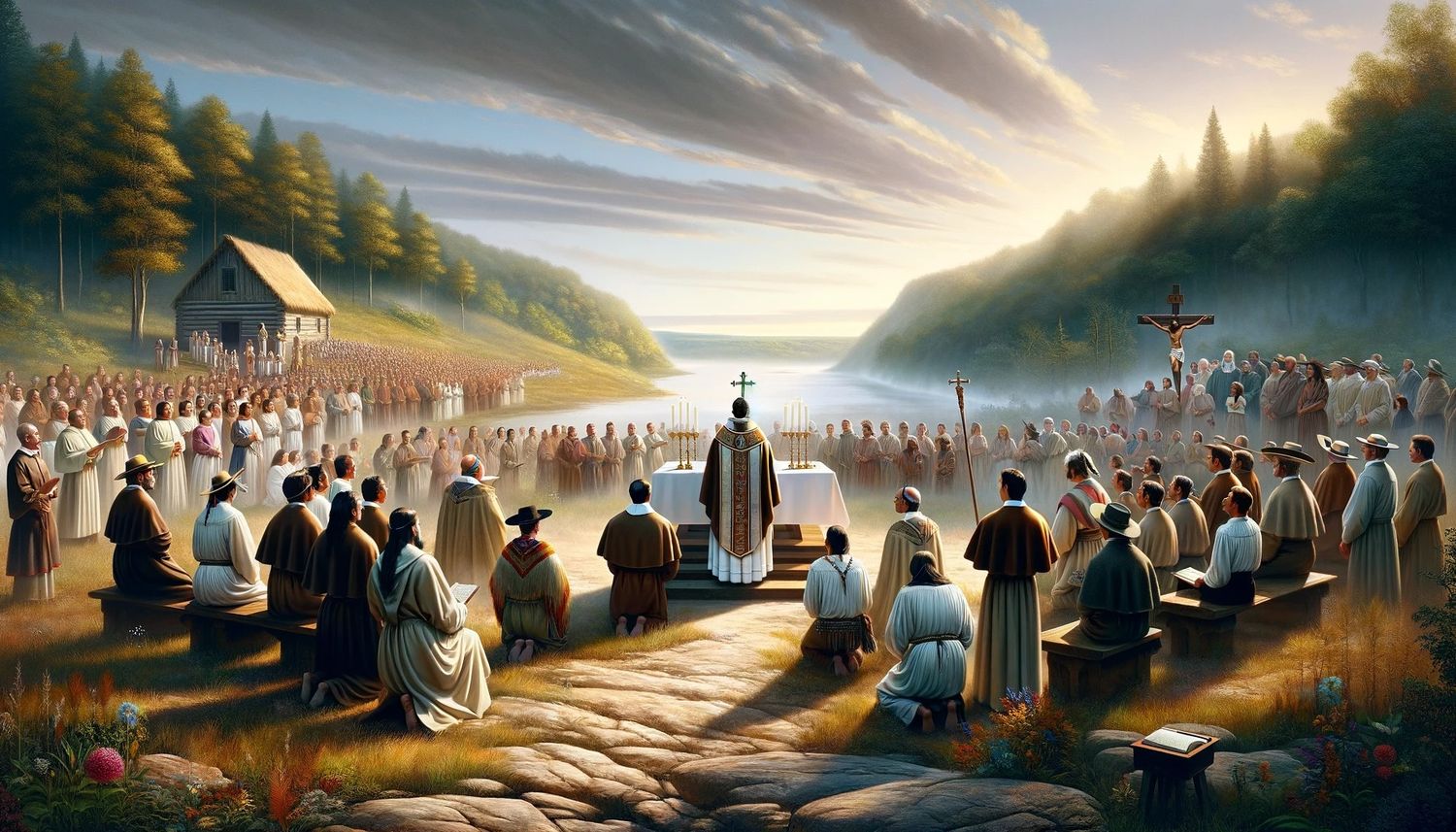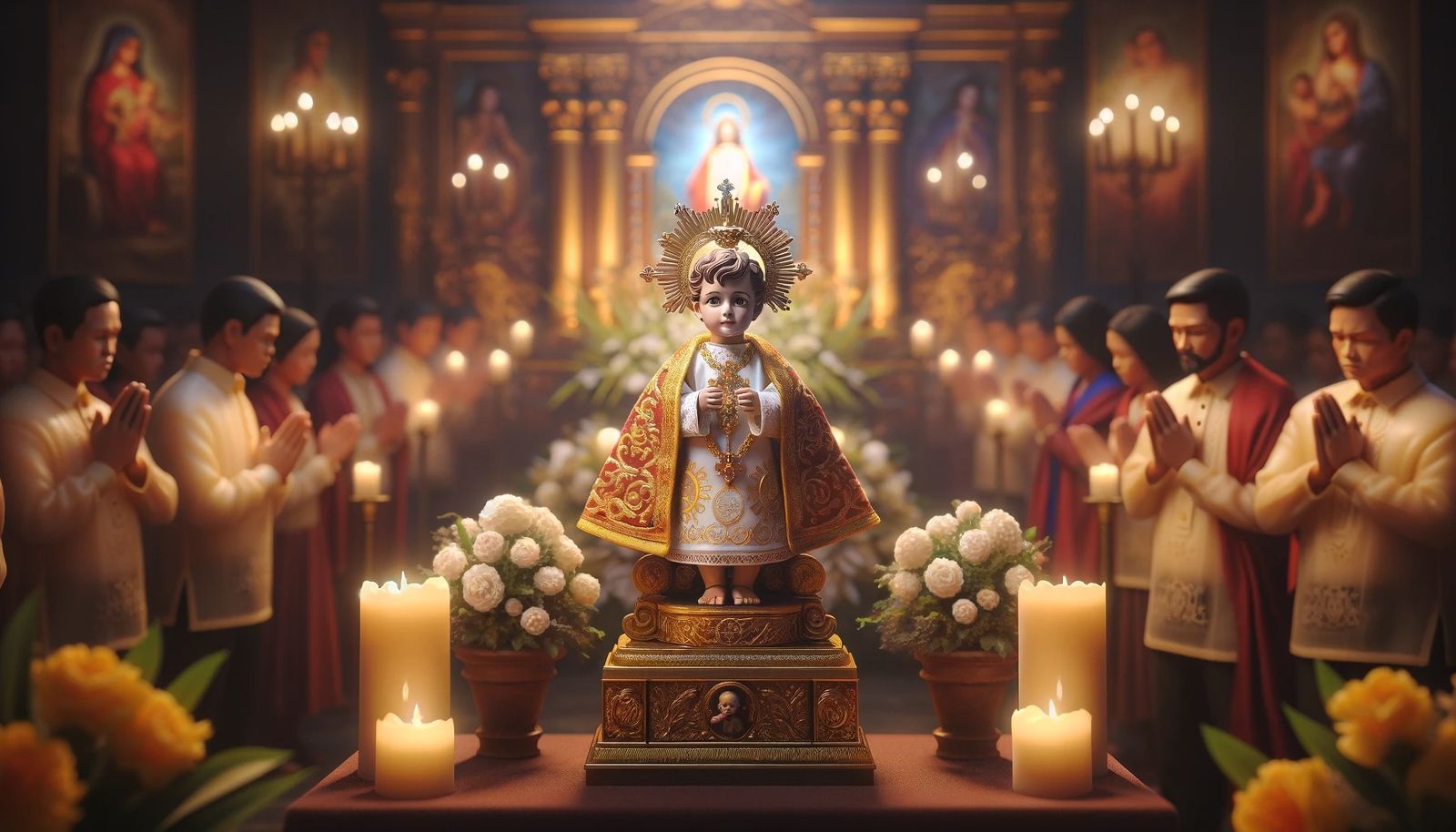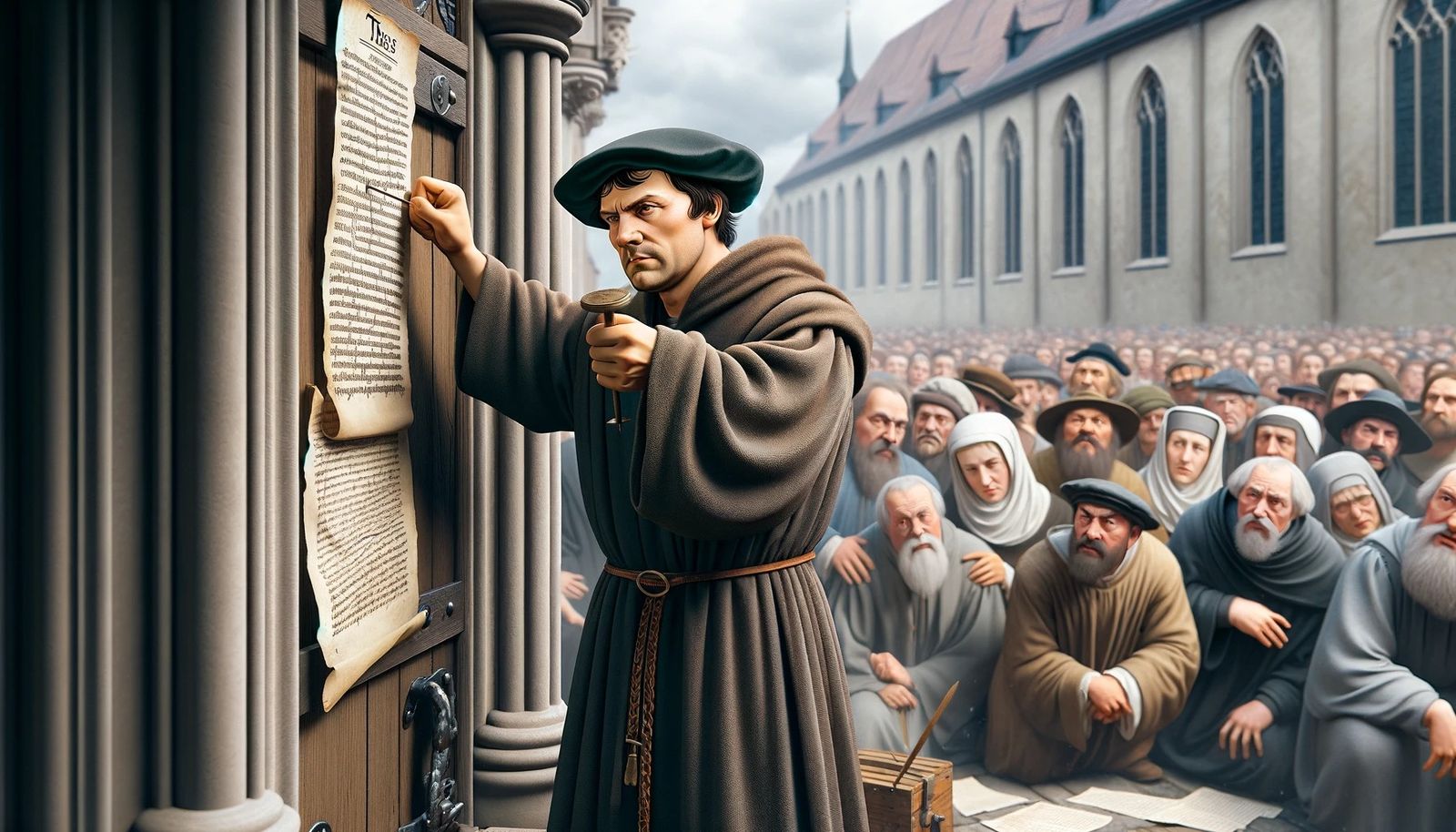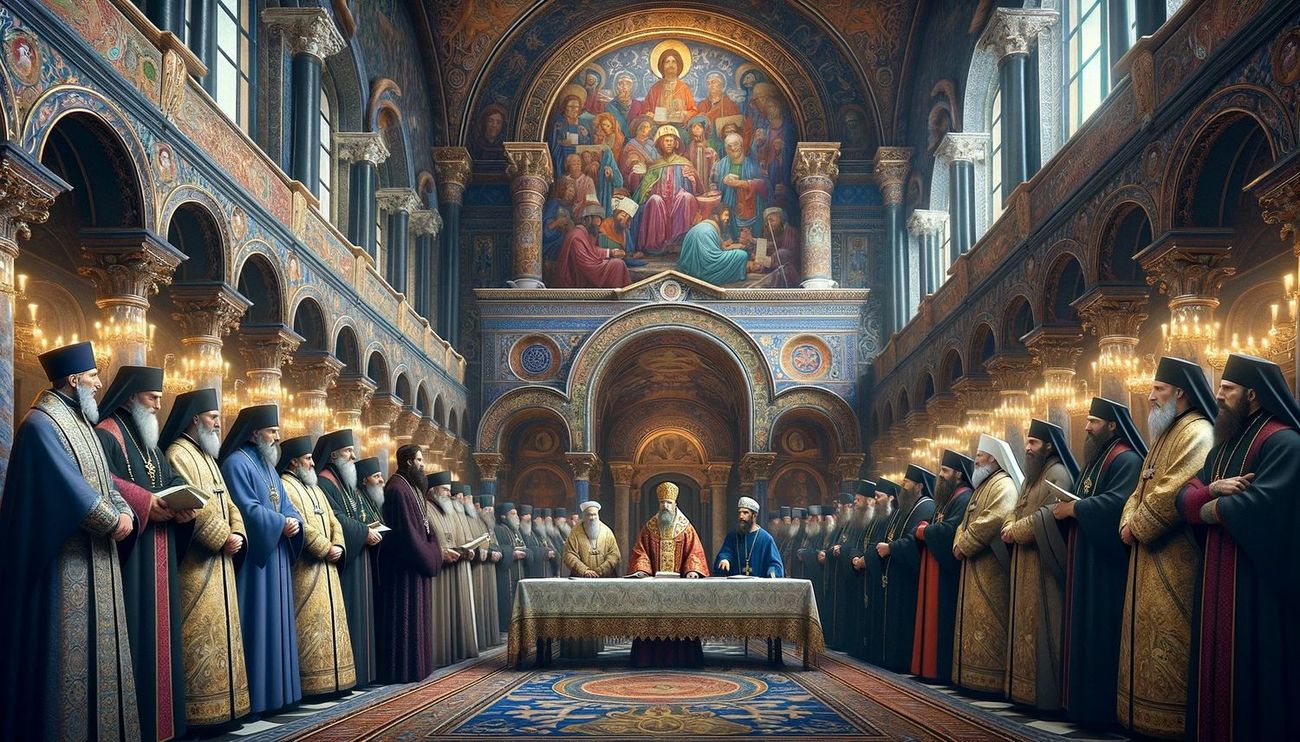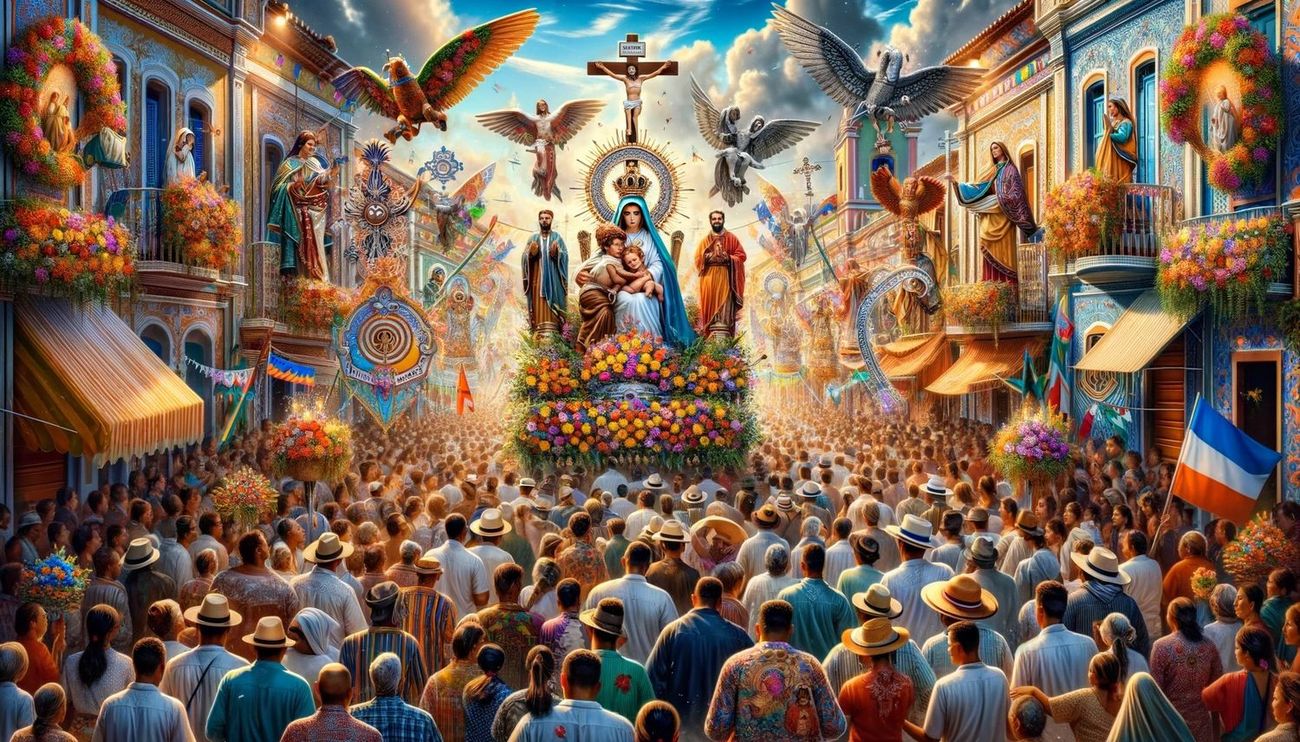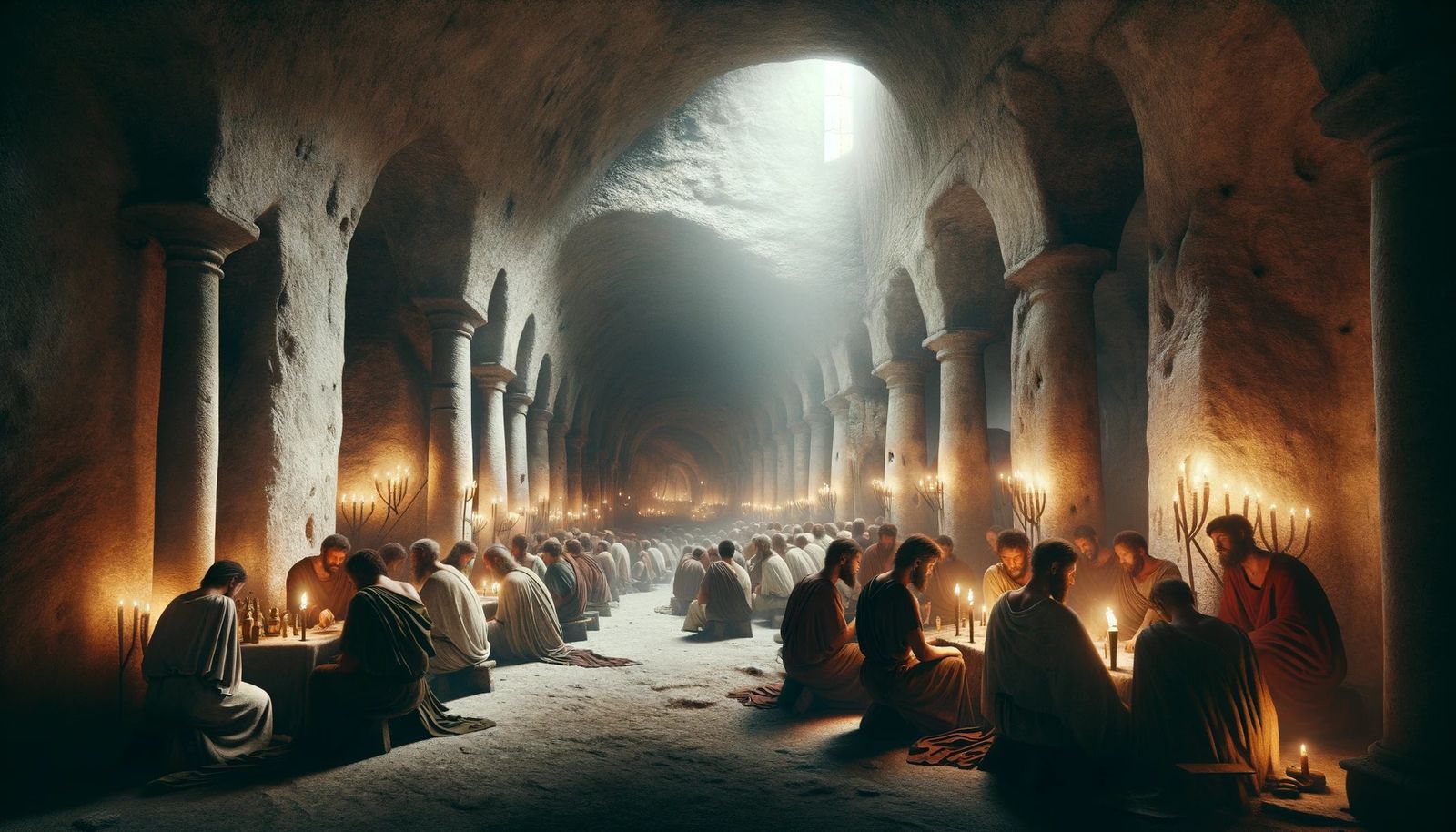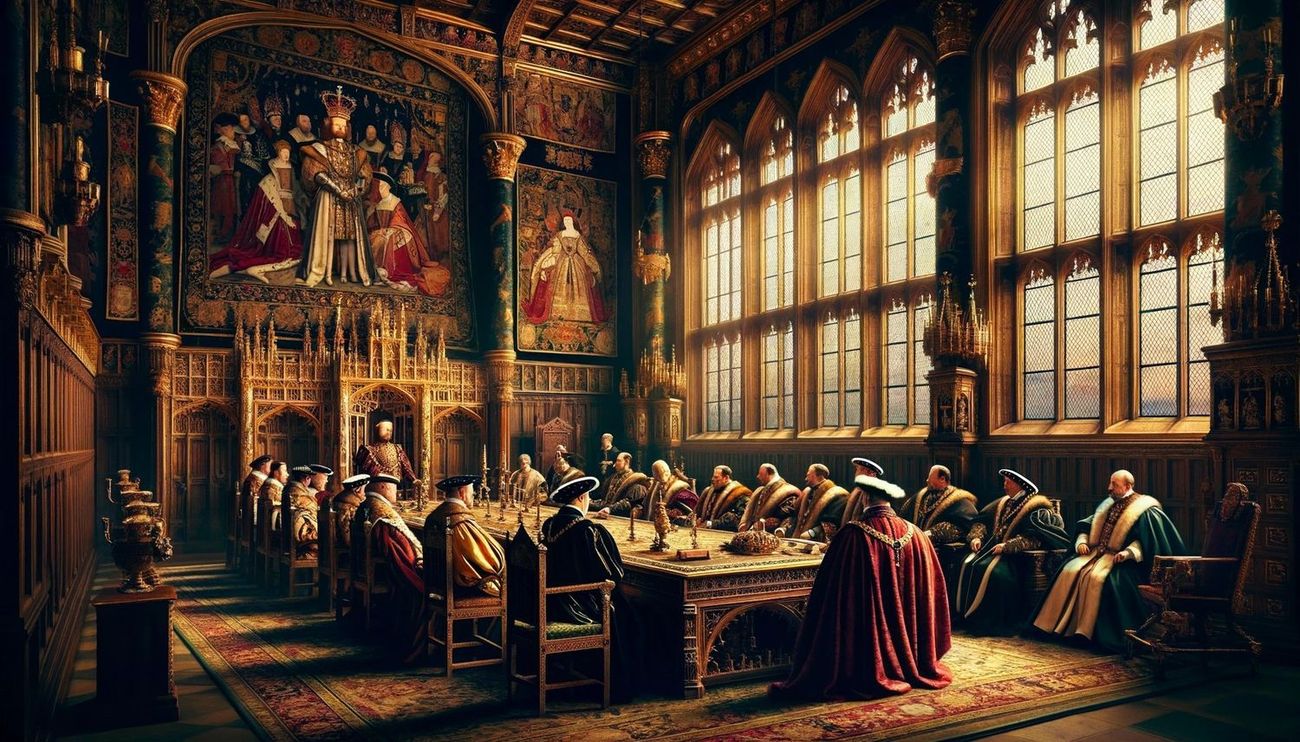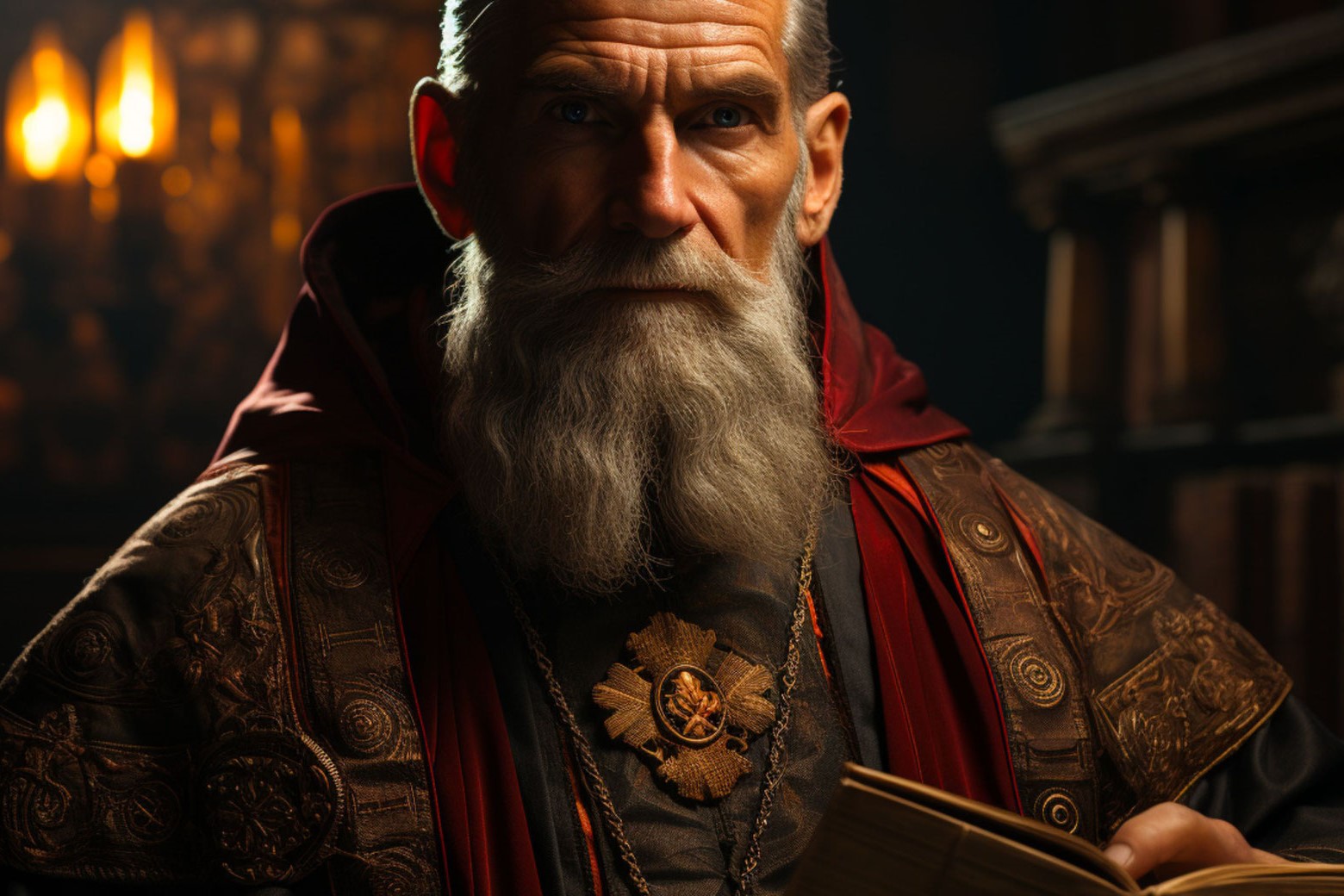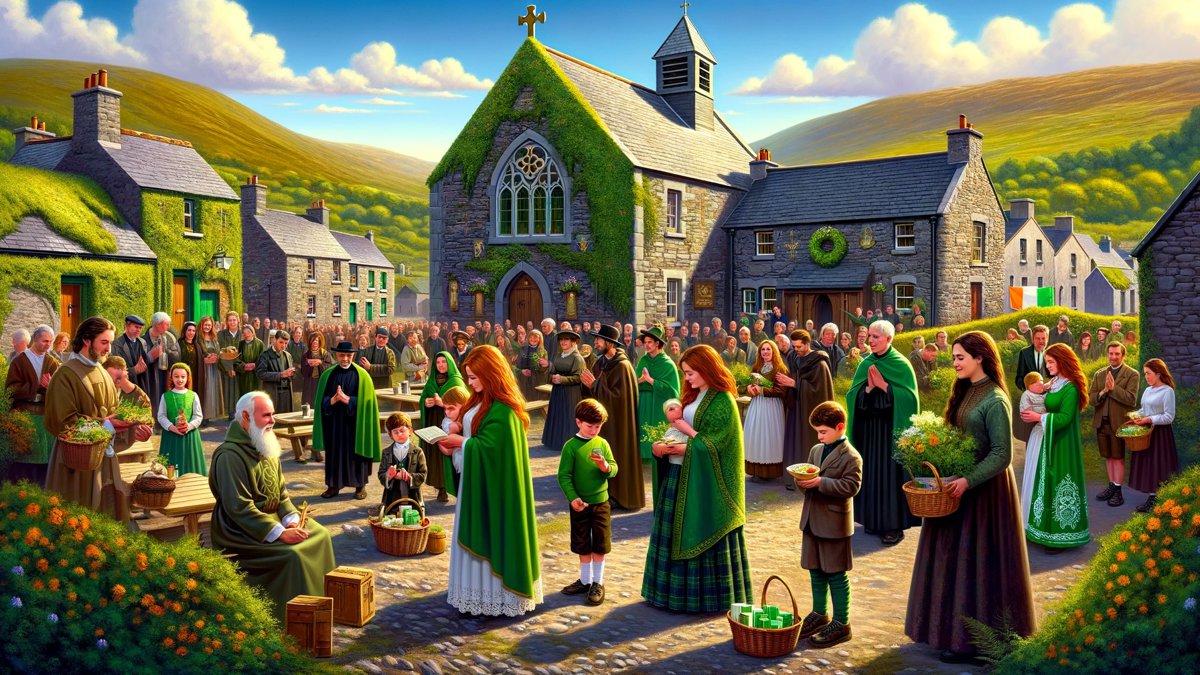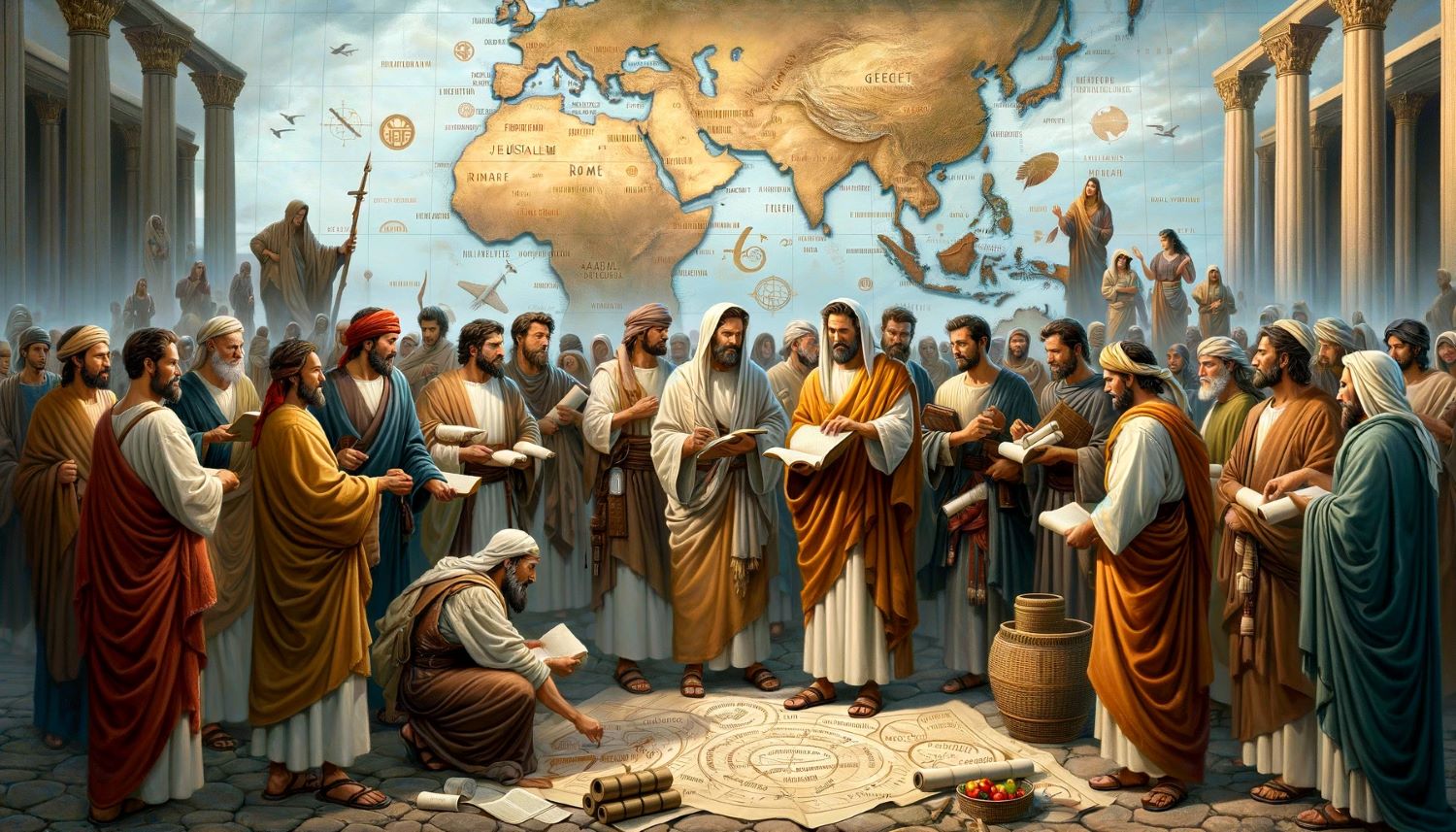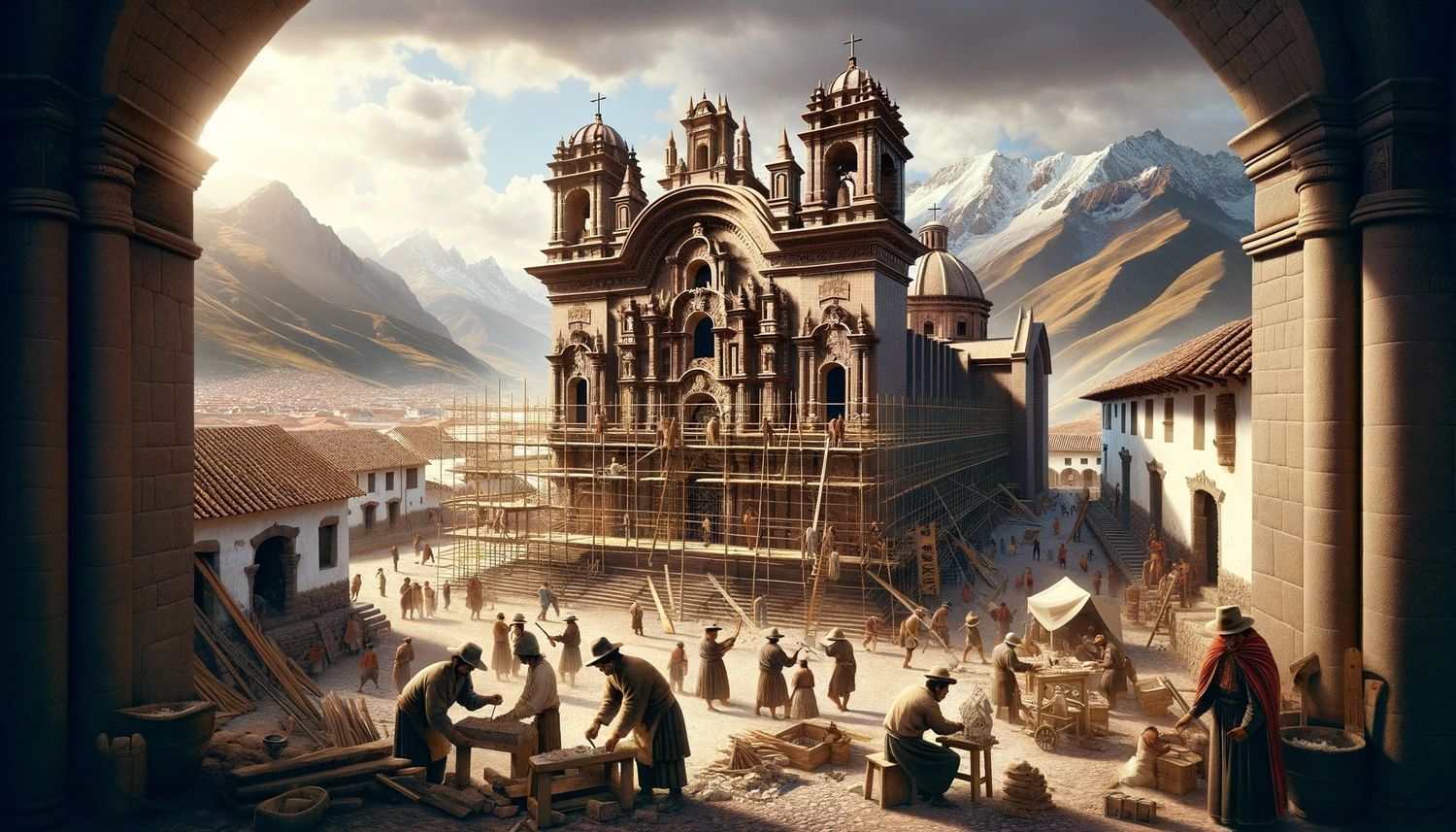Home>Theology and Spirituality>Where And When Did Catholicism Originate
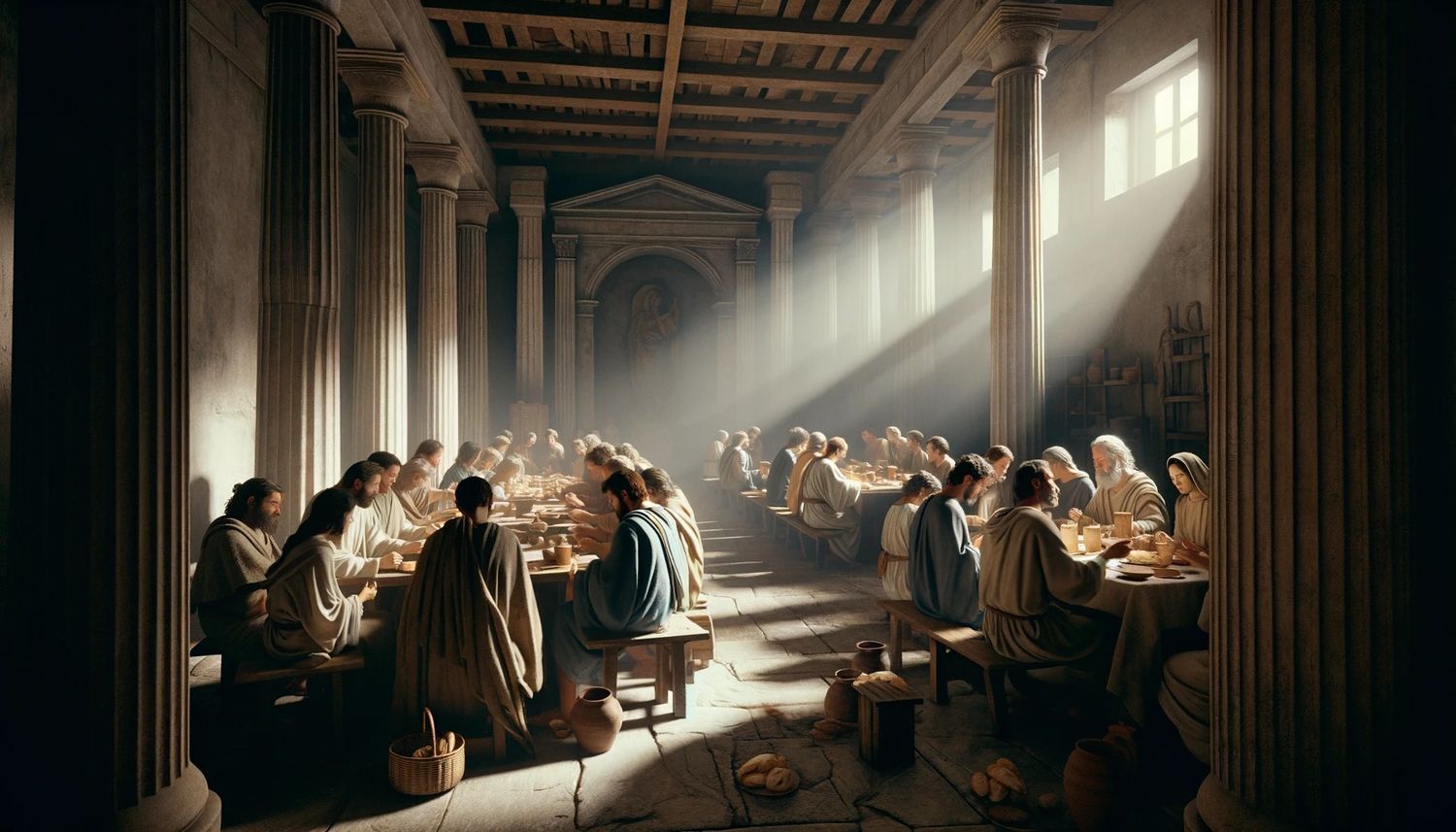

Theology and Spirituality
Where And When Did Catholicism Originate
Published: February 17, 2024
Peter Smith, Editorial Director at Christian.net, combines deep insights into faith, politics, and culture to lead content creation that resonates widely. Awarded for his contributions to religious discourse, he previously headed a major organization for religious communicators, enhancing dialogue on faith's societal impacts.
Discover the origins of Catholicism and its historical development in this comprehensive guide to theology and spirituality. Explore the roots and evolution of the Catholic faith.
(Many of the links in this article redirect to a specific reviewed product. Your purchase of these products through affiliate links helps to generate commission for Christian.net, at no extra cost. Learn more)
Table of Contents
Introduction
Catholicism, one of the oldest and most widespread Christian denominations, has a rich and complex history that spans over two millennia. Its origins are deeply intertwined with the socio-political landscape of the Roman Empire, the teachings of Jesus Christ, and the subsequent spread of Christianity throughout Europe. Understanding the origins of Catholicism provides valuable insights into the development of religious thought, the evolution of Christian theology, and the enduring impact of this faith on global culture and society.
The story of Catholicism begins in the first century AD, amidst the diverse tapestry of beliefs and practices in the Roman Empire. It was a time of great religious ferment, with various cults and belief systems vying for prominence. Against this backdrop, the teachings of Jesus Christ emerged as a radical and transformative force, challenging existing power structures and offering a message of hope and salvation to the marginalized and oppressed.
As we delve into the origins of Catholicism, we will explore the pivotal role of Jesus Christ in shaping the beliefs and practices that would eventually coalesce into the Catholic faith. We will also examine the early spread of Christianity throughout the Roman Empire and its eventual establishment as the state religion, marking a significant turning point in the history of Catholicism.
Furthermore, we will consider the profound influence of key figures such as Saint Peter and Saint Paul, whose missionary efforts and theological insights played a crucial role in shaping the early Christian communities and laying the foundation for the future development of Catholic doctrine and ecclesiastical structure.
By tracing the origins of Catholicism, we gain a deeper appreciation for the enduring legacy of this faith and its profound impact on the course of human history. From the catacombs of ancient Rome to the grand cathedrals of medieval Europe, the story of Catholicism is a testament to the enduring power of faith, the resilience of religious traditions, and the timeless quest for spiritual meaning and transcendence.
Read more: Where Did Catholicism Spread
The Origins of Catholicism in the Roman Empire
The origins of Catholicism are deeply rooted in the historical and cultural milieu of the Roman Empire during the first century AD. At this time, the Mediterranean world was a vibrant tapestry of diverse religious beliefs and practices, encompassing traditional Roman deities, cults from the eastern provinces, and various mystery religions. Amidst this religious diversity, the teachings of Jesus Christ emerged as a radical and transformative force, challenging the existing social and religious norms of the time.
Central to the origins of Catholicism is the life and ministry of Jesus Christ, whose teachings emphasized love, compassion, and the coming of the Kingdom of God. Jesus' message resonated deeply with the marginalized and disenfranchised members of society, offering them hope and a sense of belonging in a world marked by inequality and oppression. His emphasis on spiritual renewal and the ethical imperative to love one's neighbor as oneself struck a chord with many, leading to the formation of a community of believers who sought to embody his teachings in their daily lives.
The early followers of Jesus, known as the apostles, played a pivotal role in spreading his message throughout the Roman Empire. They traveled to various cities, sharing the good news of Jesus' life, death, and resurrection, and establishing communities of believers who gathered for worship, fellowship, and mutual support. These early Christian communities, often facing persecution and social ostracism, formed the embryonic foundations of what would later develop into the Catholic Church.
The martyrdom of early Christian leaders, including figures such as Saint Peter and Saint Paul, further solidified the nascent Christian movement and imbued it with a sense of resilience and steadfastness in the face of adversity. The catacombs of Rome, where early Christians buried their dead and gathered for worship in secret, bear witness to the courage and devotion of these early believers.
As Christianity continued to spread throughout the Roman Empire, it encountered both hostility and curiosity from the ruling authorities and the general populace. Despite periodic waves of persecution, the Christian faith continued to attract converts and gradually gained a foothold in the cultural and religious landscape of the empire.
The convergence of these historical, social, and religious factors laid the groundwork for the emergence of Catholicism as a distinct and enduring expression of Christian faith within the Roman Empire. The subsequent centuries would witness the consolidation of Christian doctrine, the establishment of ecclesiastical structures, and the enduring influence of Catholicism on the shaping of Western civilization.
In summary, the origins of Catholicism in the Roman Empire are a testament to the transformative power of faith in the face of adversity and the enduring legacy of a religious tradition that continues to inspire and guide millions of believers around the world.
The Role of Jesus Christ in the Origins of Catholicism
The role of Jesus Christ in the origins of Catholicism is foundational to understanding the development and enduring legacy of this ancient faith. Jesus, a Jewish teacher from the humble town of Nazareth, emerged as a transformative figure whose life and teachings would profoundly impact the course of human history. Central to his message was the proclamation of the Kingdom of God, a vision of divine sovereignty and redemptive love that challenged the prevailing religious and social norms of his time.
Jesus' ministry was characterized by acts of compassion, healing, and inclusive fellowship, which stood in stark contrast to the rigid hierarchies and exclusivist tendencies of the religious establishment. He welcomed the marginalized, dined with outcasts, and extended forgiveness to the repentant, embodying a radical ethic of love and reconciliation that transcended conventional boundaries.
At the heart of Jesus' teachings was the call to love God with all one's heart, soul, and mind, and to love one's neighbor as oneself. This ethical imperative formed the moral bedrock of the Christian faith and continues to resonate as a guiding principle for Catholic believers. Jesus' emphasis on humility, service, and sacrificial love exemplified a profound spiritual depth that transcended the temporal concerns of his era.
The pivotal moment in the origins of Catholicism lies in Jesus' sacrificial death and subsequent resurrection, which became the focal point of Christian belief and devotion. The early Christian community, profoundly impacted by the transformative power of Jesus' resurrection, bore witness to the hope of new life and the promise of redemption. This foundational belief in the resurrection of Jesus continues to be a cornerstone of Catholic faith, affirming the victory of life over death and the ultimate triumph of divine love.
Furthermore, Jesus' commissioning of his disciples to proclaim the good news and make disciples of all nations laid the groundwork for the spread of Christianity beyond the borders of Judea. The apostles, inspired by Jesus' teachings and empowered by the Holy Spirit, embarked on a mission to share the message of salvation and establish communities of believers who gathered in Jesus' name.
In essence, the role of Jesus Christ in the origins of Catholicism is characterized by his profound impact on the formation of Christian identity, the articulation of ethical principles, and the embodiment of divine love in human form. His life, teachings, death, and resurrection provided the spiritual impetus for the emergence of a vibrant and enduring faith tradition that continues to shape the hearts and minds of millions of Catholics worldwide.
The Spread of Catholicism in Europe
The spread of Catholicism in Europe represents a pivotal chapter in the history of the Catholic Church, marking a period of profound cultural, religious, and geopolitical transformation. Following the initial establishment of Christianity within the Roman Empire, the faith gradually expanded its influence across the diverse landscapes of Europe, leaving an indelible mark on the continent's spiritual and intellectual heritage.
One of the key factors contributing to the spread of Catholicism in Europe was the missionary efforts of dedicated individuals and religious orders. Monks and missionaries, such as Saint Patrick in Ireland, Saint Augustine of Canterbury in England, and Saint Boniface in Germany, played instrumental roles in evangelizing pagan tribes and consolidating Christian communities. Their tireless endeavors to preach the gospel, establish monastic centers, and educate the populace contributed to the gradual Christianization of various regions, laying the groundwork for the enduring presence of Catholicism in Europe.
Moreover, the patronage of European monarchs and rulers significantly facilitated the spread of Catholicism. Kings and queens, recognizing the unifying potential of Christianity, embraced the faith and supported the construction of churches, monasteries, and cathedrals. The alliance between the Church and the ruling elite not only fostered the dissemination of Christian teachings but also imbued the faith with a sense of cultural and political prominence, shaping the identity of European nations for centuries to come.
The establishment of renowned centers of learning, such as the monastic schools of Ireland and the great medieval universities, also contributed to the diffusion of Catholicism in Europe. These institutions served as hubs of intellectual inquiry, preserving and transmitting the wisdom of classical antiquity while nurturing a vibrant Christian intellectual tradition. The fusion of faith and reason, exemplified in the writings of theologians like Thomas Aquinas, enriched the theological landscape of Catholicism and engendered a flourishing culture of scholarship and artistic expression.
Furthermore, the pilgrimage routes to sacred sites, such as Santiago de Compostela in Spain and Rome in Italy, fostered a sense of spiritual unity among diverse European communities. Pilgrims from all walks of life embarked on arduous journeys, seeking solace, penance, and divine encounter, thereby fostering a shared sense of religious devotion and cultural exchange across the continent.
In summary, the spread of Catholicism in Europe was a multifaceted process shaped by the dedication of missionaries, the patronage of secular authorities, the intellectual vibrancy of educational institutions, and the spiritual fervor of pilgrims. This diffusion of faith not only transformed the religious landscape of Europe but also left an enduring imprint on its art, architecture, literature, and social fabric, underscoring the profound and enduring influence of Catholicism on the continent's historical narrative.
The Establishment of the Catholic Church
The establishment of the Catholic Church represents a pivotal juncture in the evolution of Christian faith and the consolidation of ecclesiastical authority. Emerging from the diverse tapestry of early Christian communities, the Catholic Church gradually coalesced into a distinct and enduring institution, wielding profound influence over the spiritual, intellectual, and social dimensions of Western civilization.
Central to the establishment of the Catholic Church was the emergence of a hierarchical structure that mirrored the administrative and political frameworks of the Roman Empire. The early Christian communities, guided by the teachings of the apostles and imbued with a sense of spiritual unity, began to organize themselves under the leadership of bishops, who assumed pastoral oversight and doctrinal authority within their respective regions. This episcopal model of governance laid the groundwork for the future development of the Catholic Church's ecclesiastical structure.
The Council of Nicaea in 325 AD, convened by the Roman Emperor Constantine, marked a significant milestone in the formalization of Christian doctrine and the articulation of core theological tenets. The council's deliberations resulted in the formulation of the Nicene Creed, which affirmed the divinity of Christ and established a doctrinal foundation that would shape the beliefs of the Catholic Church for centuries to come. Additionally, the council addressed matters of ecclesiastical governance, underscoring the growing institutionalization of the Christian faith.
The pontificate of Pope Leo the Great in the 5th century further solidified the primacy of the Bishop of Rome and laid the groundwork for the emergence of the papal office as a focal point of unity and authority within the Catholic Church. Pope Leo's theological insights, pastoral leadership, and diplomatic acumen elevated the stature of the papacy, positioning it as a central unifying force amidst the political upheavals and theological controversies of the era.
The codification of canon law, the establishment of monastic orders, and the flourishing of theological inquiry in the medieval period further contributed to the institutional development of the Catholic Church. The pontificate of Pope Gregory the Great, with his emphasis on missionary outreach and social welfare, exemplified the expanding scope of the Church's influence and its commitment to both spiritual and material well-being.
In essence, the establishment of the Catholic Church reflects a complex tapestry of historical, theological, and institutional developments that culminated in the emergence of a cohesive and enduring religious institution. The hierarchical structure, doctrinal formulations, and charismatic leadership that characterized the early centuries of the Church laid the foundation for its enduring impact on the spiritual and cultural landscape of Western civilization.
Read more: When Did Catholicism Start In Spain
Conclusion
The origins and development of Catholicism are deeply intertwined with the historical, cultural, and spiritual tapestry of human civilization. From its humble beginnings within the Roman Empire to its enduring presence as a global faith tradition, Catholicism has left an indelible mark on the hearts and minds of countless individuals throughout the ages.
The story of Catholicism is a testament to the transformative power of faith, the resilience of religious communities, and the enduring quest for spiritual meaning and transcendence. It is a narrative that encompasses the teachings of Jesus Christ, the missionary zeal of early Christian leaders, and the institutional evolution of the Catholic Church.
The origins of Catholicism within the Roman Empire reflect a period of profound religious ferment and social upheaval, during which the message of Jesus Christ emerged as a beacon of hope and redemption for the marginalized and oppressed. The spread of Catholicism in Europe, facilitated by the missionary endeavors, patronage of secular authorities, and intellectual vibrancy of educational institutions, fostered a sense of spiritual unity and cultural cohesion across diverse regions.
The establishment of the Catholic Church, marked by the development of hierarchical structures, doctrinal formulations, and charismatic leadership, solidified the enduring presence of the faith and its profound impact on the shaping of Western civilization.
In conclusion, the origins of Catholicism and the subsequent development of the Catholic Church are a testament to the enduring power of faith, the resilience of religious traditions, and the timeless quest for spiritual meaning and transcendence. The legacy of Catholicism continues to inspire and guide millions of believers worldwide, shaping the moral, intellectual, and cultural landscape of human civilization.
